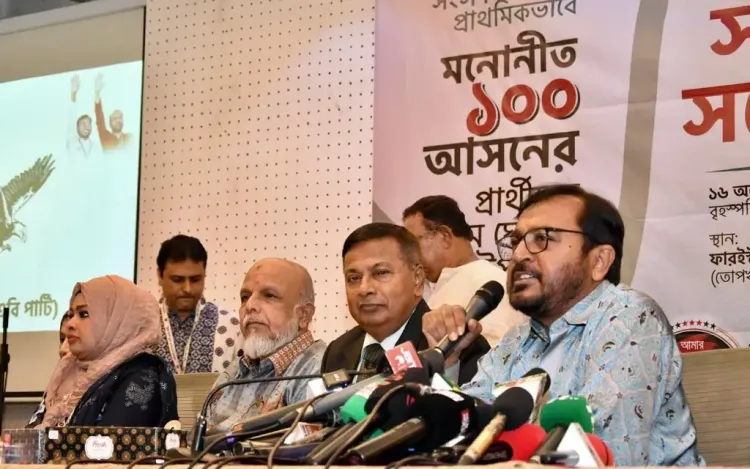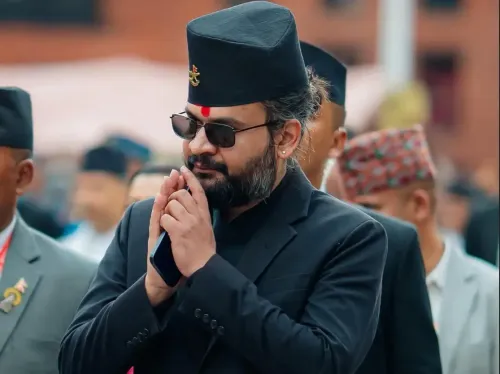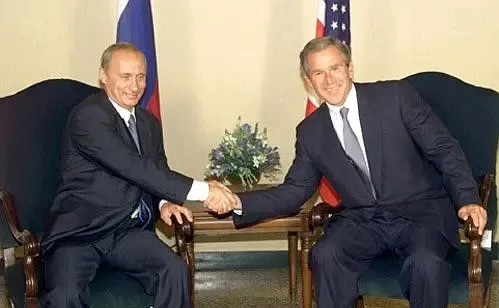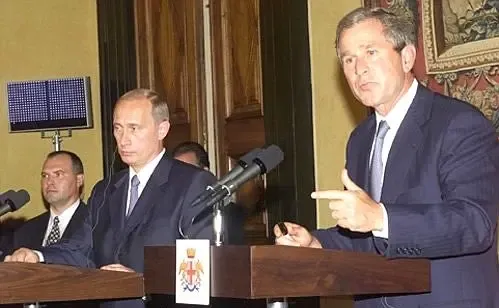Can the Yunus-led Interim Government Ensure Fair Elections in Bangladesh?

Synopsis
Key Takeaways
- Concerns over election fairness have emerged as political tensions rise.
- The Amar Bangladesh Party criticizes the interim government's inconsistency.
- Political collaboration is essential for addressing unemployment and civil rights.
- The July Charter aims to unify major political factions.
- Public safety is at risk due to ongoing political conflicts.
Dhaka, Oct 24 (NationPress) Amid rising political tensions leading up to next year's elections, the Amar Bangladesh (AB) Party raised serious concerns on Friday regarding the neutrality of the interim government led by Mohammad Yunus. They expressed skepticism about its ability to facilitate fair elections.
In a media briefing in Jhenaidah district, AB Party Chairman Mojibur Rahman Manju criticized the interim government's inconsistent approach to different political factions, claiming it is currently lost amid pressures from various parties.
"The administration failed to undergo adequate restructuring following the mass uprising. Given the ongoing turmoil, it remains uncertain whether the elections will be conducted fairly. The law enforcement bodies are also struggling to maintain order amidst clashes between the BNP, Jamaat, and NCP, which is quite unfortunate," he remarked, as reported by Bangladesh’s prominent daily 'Jugantor'.
He further stated, "The recruitment and transfer scandals have become commonplace, something no one anticipated post-uprising. Our demands from the government are minimal — merely the restoration of our civil rights. Families are concerned about youth addiction, while the public is exasperated with the violence perpetrated by extortionists. The transport infrastructure in Jhenaidah, particularly the road connecting Jessore to Jhenaidah, is in a deplorable state," he added.
Mojibur highlighted that political factions have yet to devise effective strategies to combat unemployment, insisting that actionable and well-planned solutions are urgently needed, rather than mere rhetoric.
Earlier in the week, following the signing of the July Charter, Mojibur called upon the three major political entities — including the Bangladesh Nationalist Party (BNP), the National Citizen Party (NCP), and the radical Islamist group Jamaat-e-Islami — to set aside their pride and collaborate on the charter's implementation.
He asserted that the interim government has consistently recognized these parties as significant stakeholders, granting them substantial political weight.
"However," Manju continued, "their pride has now become an obstacle to achieving national consensus. I urge these parties to act with responsibility and support the implementation of the July Charter for the nation's benefit."
As political unrest escalates, the BNP has suggested conducting a referendum to enact the July National Charter coinciding with national elections scheduled for February 2026, while Jamaat and NCP maintain that it should occur prior to the elections.
Parties that previously collaborated with Yunus to oust the democratically elected government of the Awami League, led by Sheikh Hasina, are now at odds over reform propositions.










